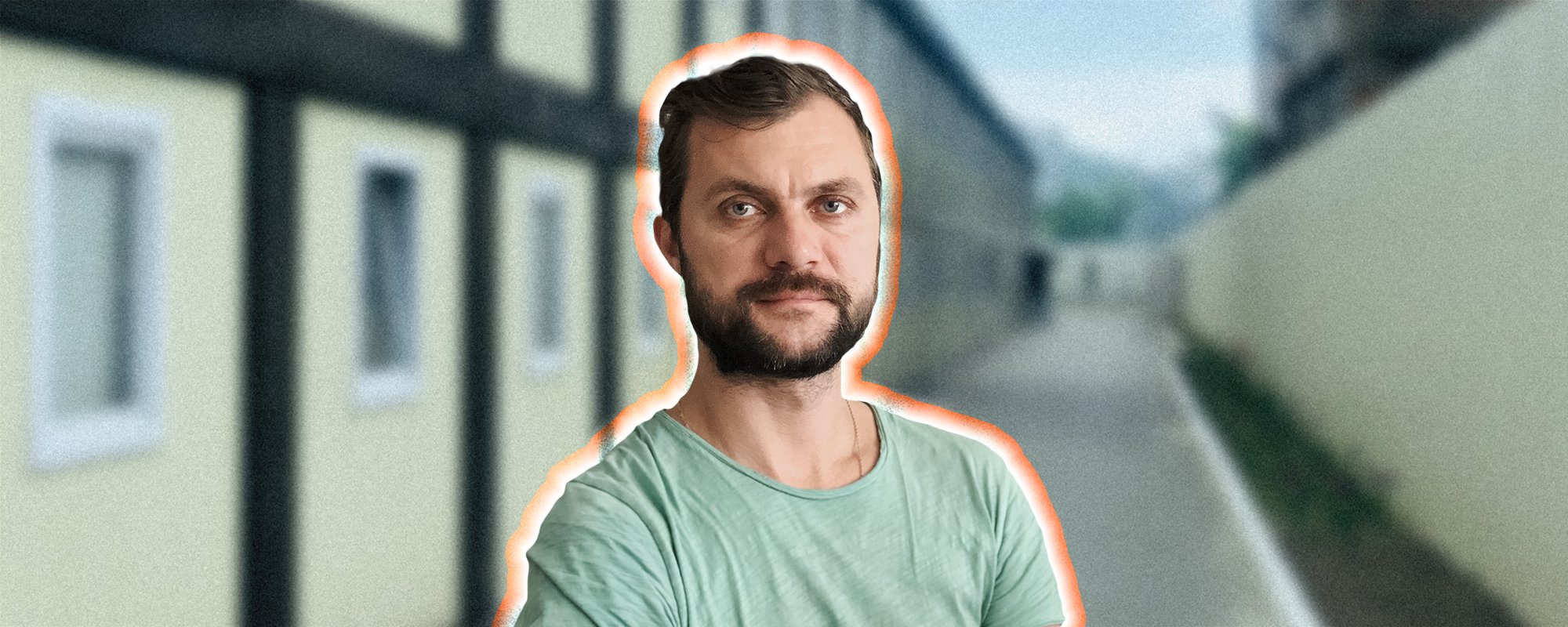At the 2022 annual Victory Day parade, Danila Tkachenko — a Russian performance artist — protested against Russia’s war in Ukraine with yellow and blue smoke, the Ukrainian national colours. He was immediately disrupted by the police. Later, they detained Grigory Mumrikov, a friend of Tkachenko suspected to be an accomplice. He was sentenced for «gross hooliganism» and spent four months in a penal centre. Here’s OVD-Info’s report:
«In Russia, saying we messed up is worse than suicide»
The story of Grigory Mumrikov’s persecution began on 10 May 2022. Late at night, he was returning from rehearsal with his friends. They were suddenly and brutally detained by police officers in civilian clothes.
Mumrikov was arrested for his acquaintance with Danila Tkachenko. The artist protested against the war at the 2022 Victory Day parade. OVD-Info has already reported on this in detail.
After detaining him, the police charged Mumrikov for allegedly swearing in the street. He was placed under arrest for 10 days.
While leaving the detention centre, he was detained again. They questioned him regarding his involvement with another criminal case.
The trial was completely absurd. They had no evidence at all. Once they let me out of the «aquarium» (a name for the pre-trial detention centre), everyone thought I’d be released. The judge disappeared for an hour, then came back and told me I wasn’t going anywhere», says Mumrikov.
On 30 May, Mumrikov was charged with «attempted hooliganism» that was «motivated by ideological hatred».
According to the charges, Mumrikov allegedly helped Tkachenko organize the protest. Mumrikov claims he had no knowledge of the plans.
The investigators believe that Mumrikov was assigned to take pictures of the protest. Their case file apparently contains CCTV footage of Mumrikov at the Okhotny Ryad metro station — located near Red Square — where the parade takes place. The address of the camera, however, is located at a different station.
«I did go to Okhotny Ryad on 5 May to meet a friend. She spoke in court, but the prosecution didn’t care for her», Mumrikov recalled.
The prosecution generated more evidence against Mumrikov. They found a fingerprint on a can of paint in the apartment Tkachenko rented before the protest. The defence argued that the DNA tests were done incorrectly. According to Mumrikov, he was with Tkachenko on 19th April and had bought paint for his own home.
«The spray can was produced on 26 April. There’s no way I could have touched it», claims Mumrikov.
Mumrikov repeatedly stated that he had nothing to do with Tkachenko’s paint. At one of the hearings, Mumrikov presented the paint he’d bought for his home.
«The law isn’t important here. They just wanted to punish someone. Once they realised they had the wrong person, it was too late to stop. For some reason, in Russia, it’s better to commit suicide than be wrong», says Grigory.
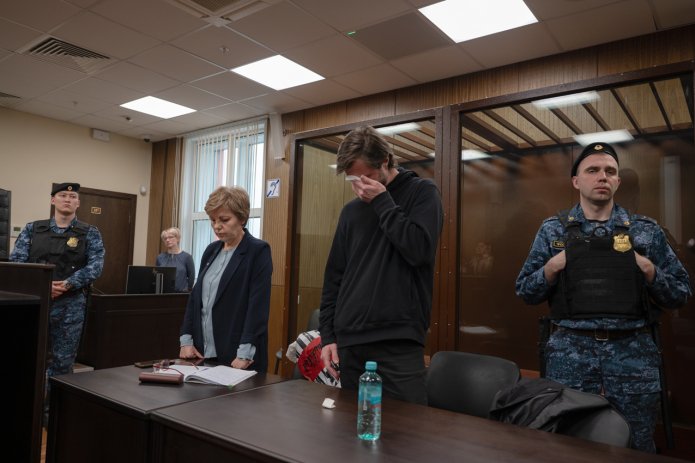
Mumrikov was held in pre-trial detention throughout this process. He was moved to house arrest in August. Eight months later, he was sentenced to 18 months of compulsory labour in the UFIC penal colony.
According to Grigory, his trial ended in March.
Judge Irina Buneeva charged Mumrikov under Articles 30 and 33 of the Russian Criminal Code, which concern planned criminal activity and complicity and allow for a maximum sentence of five years. Moreover, each day Mumrikov spent in pre-trial detention was counted as two days.
With four months remaining in his prison sentence, Grigory was transferred to the UFIC penal centre.
«Inside informants report rule-breakers»
According to Mumrikov’s description, the penal centre consisted of a two-storey building with 30-40 rooms. Each room had three to four bunk beds. The prisoners shared toilets, showers, and kitchens on each floor.
Unlike regular prisons, inmates in UFIC can use their phones and cook their own meals.
The colony staff decide what jobs the inmates work every day. At the end of the day, the prisoners are given free time, but must be back by evening inspection. The penal centre is the mildest form of punishment: «The officers are very different from the staff in the detention centre, they’re more humane here», says Mumrikov.
Most inmates in the facility had been transferred from prisons. Even inmates convicted on severe charges can apply for a reduction to their sentences.
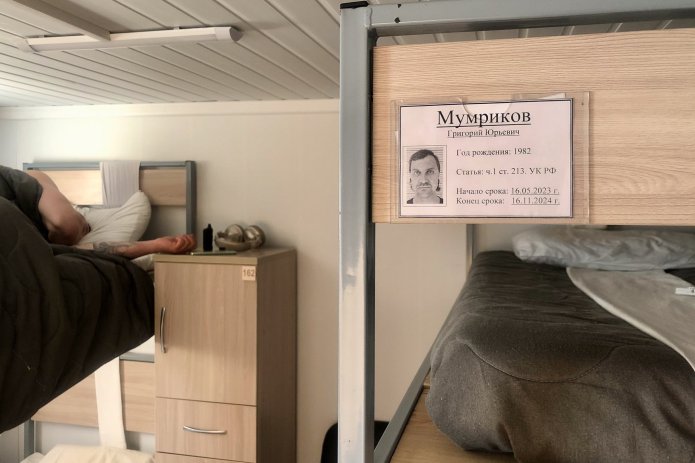
«One of the other convicts was sentenced to 12 years, another 15 years, and a third, ten. While most are there on drug-related offences, there are a few murderers here too. Some inmates just arrived, while others are from the colonies. Those who got transferred seem happier to be here», — shared Grigory.
According to Mumrikov, the officers keep a tight watch on the inmates. The prisoners can be transferred to the colony on even the slightest offence. All inmates are subject to regular drug and alcohol tests.
Mumrikov reports that those who «breach the internal order» are often reported on by «informers», other prisoners trying to get in good with the staff. The offenders are supposedly randomly selected and sent back to the colony.
Some inmates often try to escape but are quickly tracked down by the police, who constantly observe them.
You’d have to be stupid to try to escape. They run away, get drunk, and then get caught by a regular patrol. Everybody has to suffer because of such idiots. The administration doesn’t release us for the day when someone tries to run.
After inmates arrive at the UFIC, the officers assign them a job. Most inmates are sent to work on construction sites.
«For instance, most of the PIK’s (one of Russia’s leading construction companies) projects are worked on by convicts. Their work is unreliable and the flat-owners often have to redo the whole lot. I had some back problems, so I couldn’t work on the site», explains Mumrikov.
Mumrikov was assigned to a job unloading goods at the «Aksakovo» sanitorium.
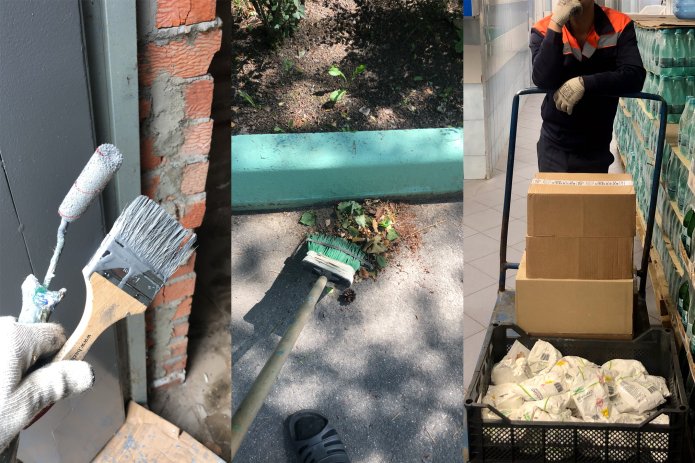
«The sanitorium administrators weren’t humans, but some orcs; they were brutal and cruel. They liked to show off their power. The deputy chief used to work at a prison colony. He told us stories about how they forced the prisoners to jump into a well „full of shit“, comments Mumrikov.
Mumrikov’s working day would start at 8 am and end at 4:30 pm. The prisoners were responsible for getting to their workplaces, so Mumrikov used his mother’s car. The prisoners earn around 16,000 rubles per month and are given free time every day. They’re required to return to the penal centre by 8 pm when the daily check is conducted.
«I would go out and get food from the store, walk around the lake, listen to music, and eat with the other inmates. Lights out was at 10 pm. After that, you weren’t allowed to leave your room», says Mumrikov.
The prisoners are allowed to go home over the weekends. Mumrikov visited his family. Shortly before his release, they left Russia.
«The last few weeks in the centre were the hardest. When I left, I realised I had nowhere to go. It was hard to cope with and I suffered mental breakdowns».
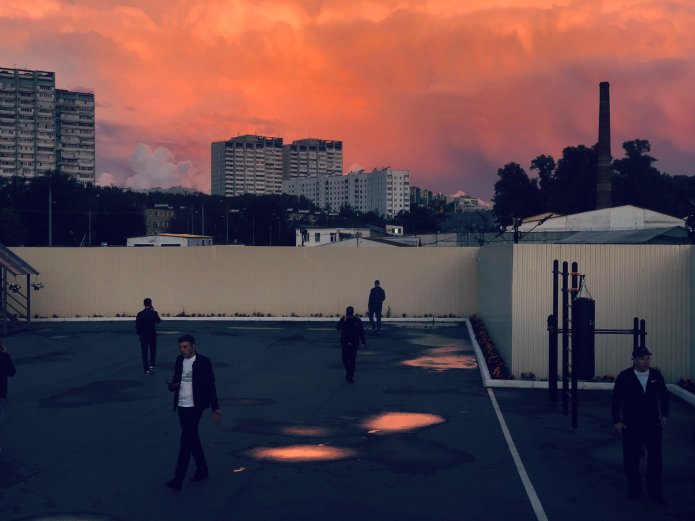
Mumrikov compares his time in the centre to a sluggish depression. Although he refused to plead guilty, he managed to obtain parole.
«I looked at you and realised that you’re not our problem»
One day, the officers offered to let Mumrikov admit his guilt. Without this, Mumrikov had virtually no chance at parole. Despite their offer, Mumrikov refused to sign.
«I said I wouldn’t admit to anything. I wasn’t guilty. For some reason, the deputy officer understood. We talked, he listened, and he said to me: „I looked at you and realised that you’re not our problem“, says Mumrikov.
In July, Mumrikov collected all the necessary documents and went to court. A representative of the penal colony was at the hearing.
«They read my case again. I didn’t change my testimony and refused to admit to guilt. Nevertheless, the colony staff said I should be released. Five minutes later, the judge came back and granted my release. I was released on 11 September. My sentence originally ended on 28 September. It’s not a big difference, but I was ready to take any chance to leave earlier», recalls Mumrikov.
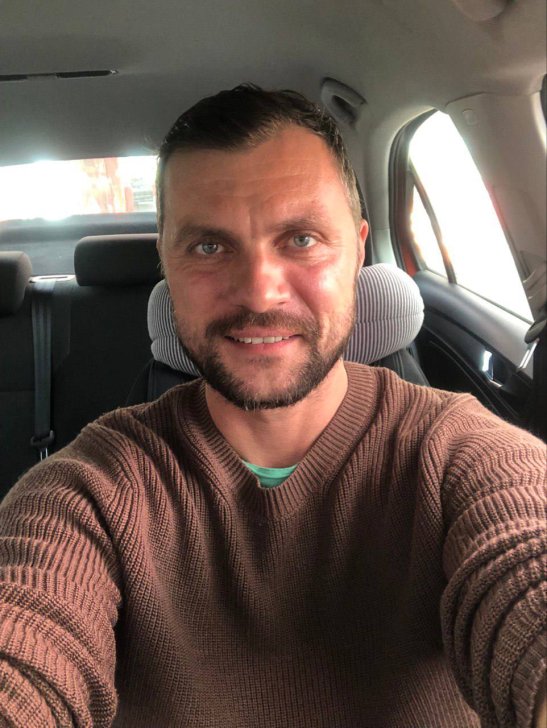
Not even two days after his release, Mumrikov left Russia. He is currently in Montenegro with his family. Although his case is closed, the police have already visited his mother-in-law.
They were interested in his current whereabouts. The lawyers explained that law enforcement agencies like to remind ex-prisoners that they’re still being watched.
«Their key objective is intimidation. Once people get into this system, they’re stuck there forever. I’m still afraid and I watch my back. I get worried whenever someone drives behind me for a while, even though I’m in a different country. Every day, I deal with the consequences of the penal colony», says Grigory
Alexey Slavin



